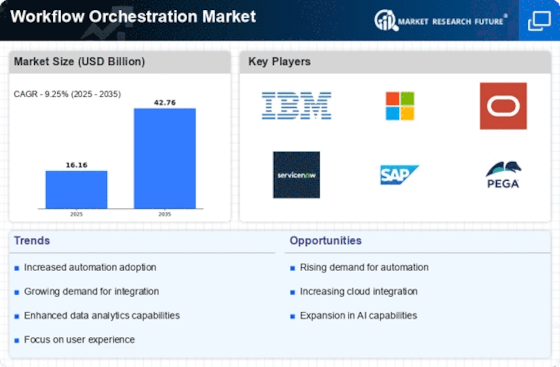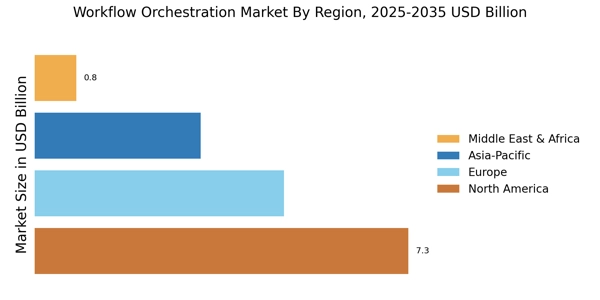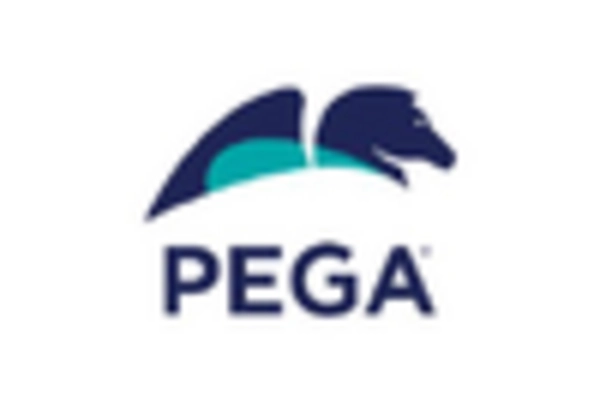Rising Demand for Automation
The Workflow Orchestration Market experiences a notable surge in demand for automation solutions. Organizations are increasingly seeking to streamline their operations, reduce manual intervention, and enhance efficiency. According to recent data, the automation market is projected to grow at a compound annual growth rate of over 25% in the coming years. This trend indicates a strong inclination towards adopting orchestration tools that facilitate seamless integration of various processes. As businesses strive for operational excellence, the Workflow Orchestration Market is likely to benefit from this growing demand, as companies recognize the value of automating repetitive tasks and optimizing workflows.
Emergence of Hybrid Work Environments
The rise of hybrid work environments is reshaping the Workflow Orchestration Market. As organizations adopt flexible work models, the need for orchestration tools that facilitate collaboration among remote and in-office employees becomes increasingly vital. Data suggests that companies implementing hybrid work strategies can improve employee satisfaction and productivity. This shift necessitates the integration of orchestration solutions that can seamlessly connect disparate workflows and ensure consistent communication. The Workflow Orchestration Market is poised to capitalize on this trend, as businesses seek to create cohesive and efficient workflows that accommodate diverse work settings.
Growing Adoption of Cloud Technologies
The Workflow Orchestration Market is witnessing a marked increase in the adoption of cloud technologies. As organizations migrate their operations to the cloud, the need for orchestration tools that can manage and optimize cloud-based workflows becomes paramount. Data indicates that the cloud computing market is expected to reach a valuation of over 800 billion dollars by 2025. This growth presents a substantial opportunity for the Workflow Orchestration Market, as businesses seek solutions that can enhance collaboration, scalability, and flexibility in their cloud environments. The integration of orchestration tools with cloud platforms is likely to drive innovation and efficiency.
Need for Enhanced Compliance and Security
In an era where data breaches and regulatory compliance are critical concerns, the Workflow Orchestration Market is increasingly focused on enhancing compliance and security measures. Organizations are compelled to adopt orchestration solutions that ensure adherence to industry regulations while safeguarding sensitive information. The market for compliance management solutions is projected to grow significantly, reflecting the urgency for businesses to implement robust security protocols. By leveraging orchestration tools, companies can automate compliance processes, thereby reducing the risk of human error and ensuring that workflows align with regulatory requirements. This trend is likely to shape the future of the Workflow Orchestration Market.
Increased Focus on Data-Driven Decision Making
In the current landscape, the Workflow Orchestration Market is significantly influenced by the increasing emphasis on data-driven decision making. Organizations are leveraging data analytics to inform their strategies and improve operational efficiency. The ability to orchestrate workflows based on real-time data insights allows companies to respond swiftly to market changes. Recent studies suggest that businesses utilizing data-driven approaches can enhance their productivity by up to 30%. This trend underscores the importance of integrating orchestration tools that can effectively manage data flows and support informed decision-making processes within the Workflow Orchestration Market.

















